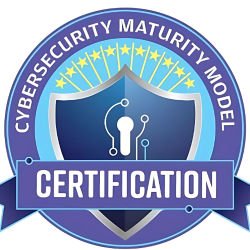Ultimate Guide to Encryption Methods

In an era where data breaches and cyber threats are on the rise, encryption has become a cornerstone of cybersecurity. Encryption secures your information by converting readable data into secret code that only authorized parties can decode. In this guide, we’ll explore the fundamentals of encryption and its various methods to help Chicago businesses and individuals safeguard their data effectively.
What is Encryption?
Encryption is the process of converting plaintext—readable data—into ciphertext, an unreadable format. Only those with the correct decryption key can transform the ciphertext back into plaintext. Think of encryption as a digital lock that protects your sensitive information from unauthorized access.
Why Do We Use Encryption?
Encryption is essential for maintaining privacy, security, and trust in today’s interconnected world. It protects sensitive data from hackers, ensuring that personal and business information remains confidential. Whether you’re shopping online, sending emails, or storing files in the cloud, encryption plays a crucial role in keeping your data secure.
How Does Encryption Work?
Encryption relies on algorithms and keys. An algorithm is a set of mathematical rules used to scramble data, while a key is the secret code that enables the scrambling and unscrambling process. Together, they ensure that only authorized parties can access encrypted information.
Symmetric vs. Asymmetric Encryption
Encryption methods are broadly categorized into symmetric and asymmetric encryption:
1. Symmetric Encryption
Symmetric encryption uses the same key for both encryption and decryption. While it’s faster, it’s less secure because the key must be shared between parties, increasing the risk of exposure.
2. Asymmetric Encryption
Asymmetric encryption uses a pair of keys: a public key for encryption and a private key for decryption. It’s more secure than symmetric encryption, as the private key remains confidential and is never shared.
Common Encryption Methods
Several encryption methods are widely used today, each with unique strengths:
1. AES (Advanced Encryption Standard)
- Type: Symmetric encryption
- Key Lengths: 128, 192, or 256 bits
- Use Cases: Protecting sensitive data in finance, government, and technology sectors
- Why It’s Secure: AES is resistant to brute-force attacks due to its long key lengths.
2. RSA (Rivest-Shamir-Adleman)
- Type: Asymmetric encryption
- Key Strength: Often uses 2048-bit keys or higher
- Use Cases: Secure data transmission, digital signatures
- Why It’s Secure: RSA relies on the difficulty of factoring large numbers, making it highly secure.
3. ECC (Elliptic Curve Cryptography)
- Type: Asymmetric encryption
- Key Strength: Offers strong security with shorter keys
- Use Cases: Mobile devices, IoT, and cryptocurrencies
- Why It’s Secure: ECC provides robust security while being computationally efficient.
4. DES (Data Encryption Standard)
- Type: Symmetric encryption
- Key Length: 56 bits
- Use Cases: Legacy systems
- Why It’s Outdated: DES is no longer considered secure due to its short key length and vulnerability to brute-force attacks.
Everyday Uses of Encryption
Encryption is an integral part of our daily digital interactions. Here’s how it safeguards your activities:
1. Online Shopping
Payment information is encrypted during transactions to protect credit card details from hackers.
2. Messaging Apps
Apps like WhatsApp and Signal use end-to-end encryption to ensure only the sender and recipient can read messages.
3. Email Security
Many email providers encrypt emails in transit and at rest to protect sensitive communication.
4. Cloud Storage
Cloud services encrypt your files to prevent unauthorized access.
Challenges of Encryption
While encryption offers numerous benefits, it’s not without challenges:
1. Key Management
Keeping encryption keys secure is critical. If a key is lost, the encrypted data may become inaccessible.
2. Performance Issues
Encryption and decryption processes can slow down systems, especially on resource-limited devices.
3. Compliance
Businesses must ensure their encryption practices meet industry standards and regulatory requirements, such as GDPR or CCPA.
Tips for Staying Safe with Encryption
To maximize the benefits of encryption, follow these best practices:
1. Use Strong Passwords
Strong passwords protect your encryption keys and accounts. Combine upper- and lowercase letters, numbers, and symbols for maximum security.
2. Keep Software Updated
Outdated software may have vulnerabilities that compromise encryption. Enable automatic updates to stay protected.
3. Use a VPN
A Virtual Private Network encrypts your internet connection, ensuring privacy even on public Wi-Fi networks.
4. Choose Trusted Tools
Select reputable encryption tools and services with proven security records.
Conclusion
Encryption is an essential tool for safeguarding sensitive information in 2025 and beyond. By understanding and implementing the right encryption methods, businesses and individuals can protect their data, maintain privacy, and reduce the risk of cyber threats.
At Hudson Sky, we specialize in helping Chicago businesses implement robust encryption solutions tailored to their unique needs. Contact us today to learn how we can help secure your data and keep your operations running smoothly.
FAQs
1. What is encryption, and why is it important?
Encryption secures data by converting it into an unreadable format, protecting it from unauthorized access. It’s crucial for maintaining privacy and security in today’s digital world.
2. What is the difference between symmetric and asymmetric encryption?
Symmetric encryption uses the same key for encryption and decryption, while asymmetric encryption uses a pair of keys—a public key and a private key—for enhanced security.
3. How is encryption used in everyday life?
Encryption is used in online shopping, messaging apps, email security, and cloud storage to protect sensitive information.
4. What are the common challenges of encryption?
Key management, performance issues, and ensuring compliance with regulations are some common challenges associated with encryption.
5. How can Hudson Sky help with encryption?
Hudson Sky provides tailored encryption solutions for Chicago businesses, ensuring data security and compliance with industry standards.
